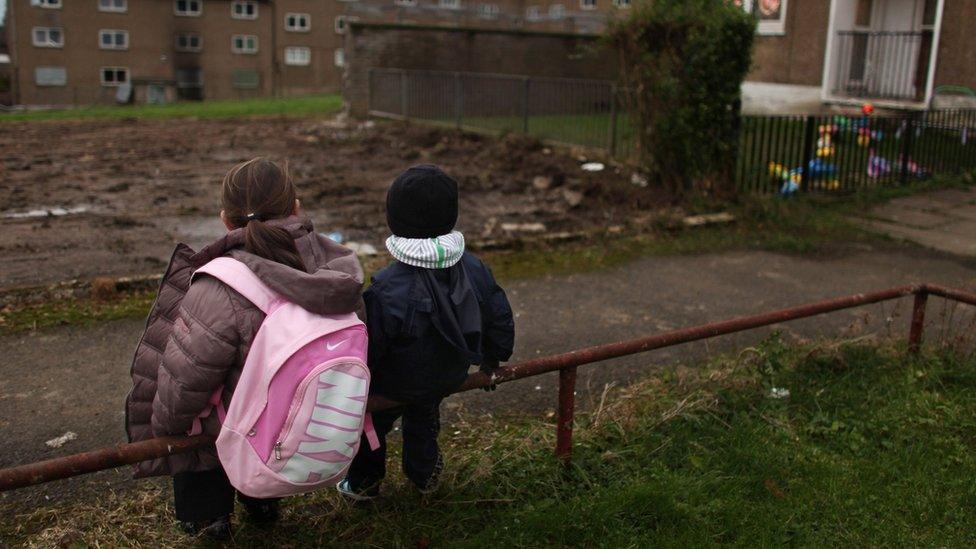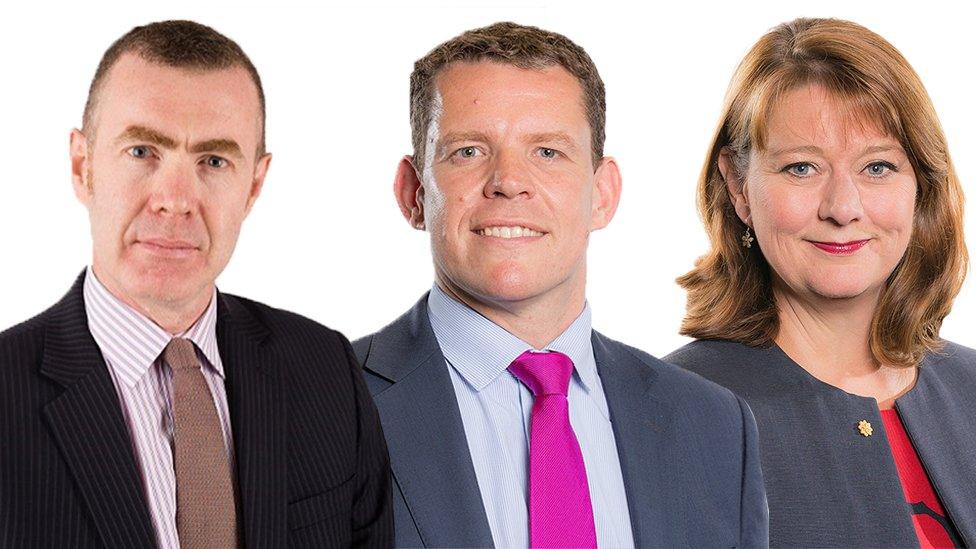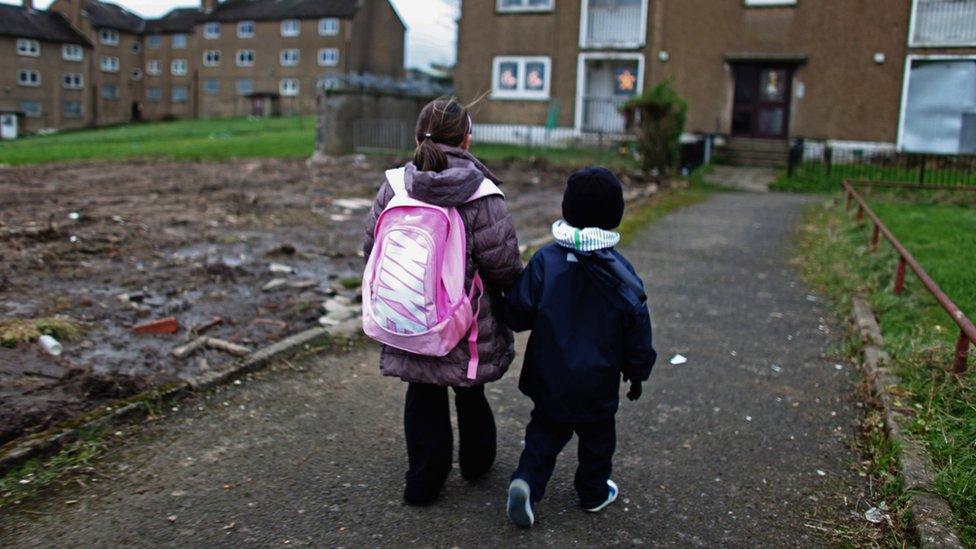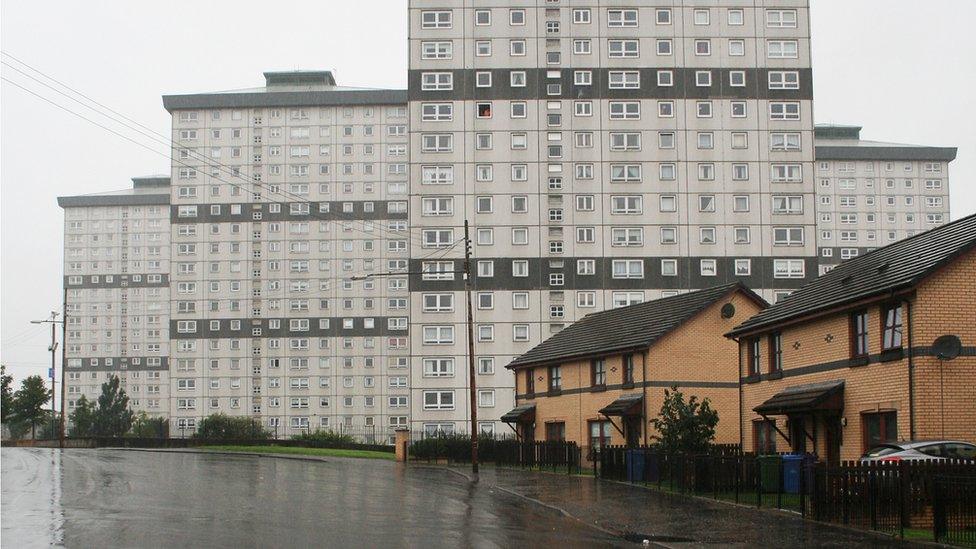Income 'not the only factor' in poverty
- Published
- comments

"Inescapable" costs, like childcare and disability, should be considered alongside income when measuring poverty in the UK, experts say.
The Social Metrics Commission says the proposals make "significant changes to our understanding" of poverty.
The measurement puts 68% of those in families where no-one works in poverty and 9% in families where adults work full-time.
The government said it offered "further insight" into a "complex" issue.
It currently measures poverty by looking at a person's income compared with the rest of the country, and compares present incomes with salaries earlier in the decade to see how they have changed over time.
The SMC says as well as costs, the new measure takes into account the positive impact of access to liquid assets, such as savings.
It also takes steps to include groups of people who have been left out of poverty statistics before, such as those living on the streets or in overcrowded housing.
The organisation has developed the measure over the last two-and-a-half years.
Chair of the SMC, Baroness Philippa Stroud, said groups needed to come together when looking at how to measure poverty.
"The need for an independent commission was clear," she said.
"For too long it has been possible to have a debate about the measurement of poverty.
"Now I call on people and organisations across, and outside of, the political spectrum to support this new measure of poverty so that we can all put our energy into creating the policies and solutions that build pathways out of poverty."
UK variations
The latest study from the SMC , externalshows there are 2.5 million people in the UK who are less than 10% above the poverty line, which means small changes in circumstances could see them fall below it.
But the SMC said there was good news from their metrics too, with far fewer pensioners living in poverty than was previously thought thanks to a "significant fall" in pensioner poverty over the last 15 years.
The poverty rates varied significantly across the UK though.
The lowest rates were in Scotland - almost 3% lower than the UK's overall figure of 22% - and the highest were in Wales - around 24%.
England showed the highest levels of child poverty - close to 33%.
A UK government spokeswoman said: "Measuring poverty is complex, and this report offers further insight into that complexity and the additional measures that can be taken into consideration.
"This government is committed to making a positive difference to the outcomes for poor and disadvantaged families and children."
- Published16 September 2018

- Published26 March 2018

- Published15 March 2018
